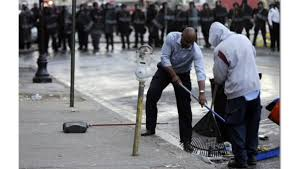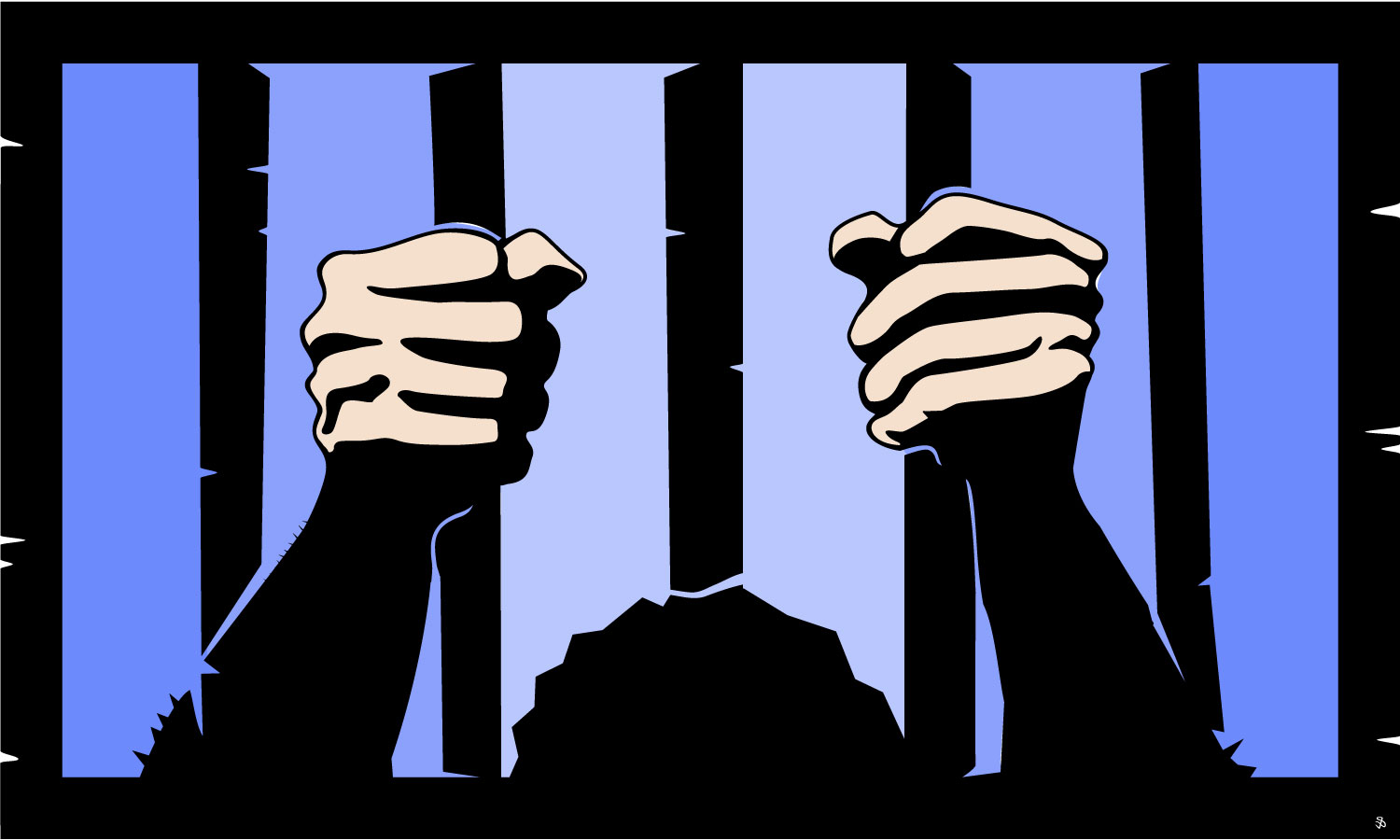 Yesterday Freddie Gray, age 25, was buried after succumbing to injuries he sustained at the hands of several Baltimore Police Department officers. No one knows exactly what happened that terrible day on April 12, 2015 and perhaps no one ever will. But one thing is for certain- Mr. Freddie Gray is dead. His twin sister has lost her brother, his parents have lost their son, and the world has lost another young black man to police brutality. The media consistently reports that Freddie died of a spinal injury but official reports state that his spine was severed, an injury so severe that it took his life. Semantics? I think not. If we are going to have a real discussion on the issue of police brutality, accountability, police-community relations, and steps towards healing then we must not sugarcoat the issue. 25 year-old Freddie Gray died after officers stomped on his back and severed his spine ending his short life. They gave Freddie Gray a life sentence for allegedly having guns in his possession. These officers acted as the judge and jury and unfortunately Mr. Gray did not have a chance.
Yesterday Freddie Gray, age 25, was buried after succumbing to injuries he sustained at the hands of several Baltimore Police Department officers. No one knows exactly what happened that terrible day on April 12, 2015 and perhaps no one ever will. But one thing is for certain- Mr. Freddie Gray is dead. His twin sister has lost her brother, his parents have lost their son, and the world has lost another young black man to police brutality. The media consistently reports that Freddie died of a spinal injury but official reports state that his spine was severed, an injury so severe that it took his life. Semantics? I think not. If we are going to have a real discussion on the issue of police brutality, accountability, police-community relations, and steps towards healing then we must not sugarcoat the issue. 25 year-old Freddie Gray died after officers stomped on his back and severed his spine ending his short life. They gave Freddie Gray a life sentence for allegedly having guns in his possession. These officers acted as the judge and jury and unfortunately Mr. Gray did not have a chance.
The match was lit and Baltimore burned for the better part of the afternoon and night of April 27th. While many protested peacefully in the street, others used it as an opportunity to engage in lawlessness. Baltimore residents are angry. Those watching around the country and world are angry. We are all angry. But how does breaking into a liquor store or destroying a CVS Drug Store further the cause in a positive manner? How does bad behavior honor the spirit of Freddie Gray or comfort his family? It doesn’t. It is an unnecessary distraction and confuses the agenda. For those rioting in Baltimore, they are in the minority and they are punishing no one but themselves. They open themselves up to arrest, prosecution, jail time, and have physically destroyed segments of their own communities.
The Governor blamed the mayor for not acting soon enough and the National Guard was called in to occupy another city exploding from the frustration and anger of police brutality and unnecessary force. Not acknowledging the real problem feeds into the Us versus Them mentality between the police and the black community and broadens the divide between these two groups. It is absolutely mind-boggling that in 2015 we as a society are here again. With all that occurred in Stamford, Florida, Staten Island, NY, Ferguson, MO, Tulsa, OK, and many other cities, you would think that we would have learned. Leaders need to truly step up and take action that will be lasting and leave the recycled rhetoric in the past.
The good news is that every day we are provided with a new opportunity to start over and get it right. And this morning, residents of Baltimore let the rioters in the community, their fellow neighbors, and the country know that they were not going stand by and let their city be destroyed. So people pulled out their brooms and got out trash bags and started the slow process of cleaning up. This gesture is creating an atmosphere of solidarity and perhaps the healing has begun. The world is still young and we all must live in it together so why not do that from a place of love and respect? Surely that’s better than putting fires out.
Be safe,
L.J. Follow me on Twitter: @CrimeDoc1213
#FreddieGray #policebrutality #policeabuse #Baltimore #BaltimoreUprising #policeaccountability #blacklivesmatter #crime #justice #peace #healing #death #future #hope
Images courtesy of: www.wbaltv.com www.heavyeditorial.com www.townhall.com www.telesurtv.net





